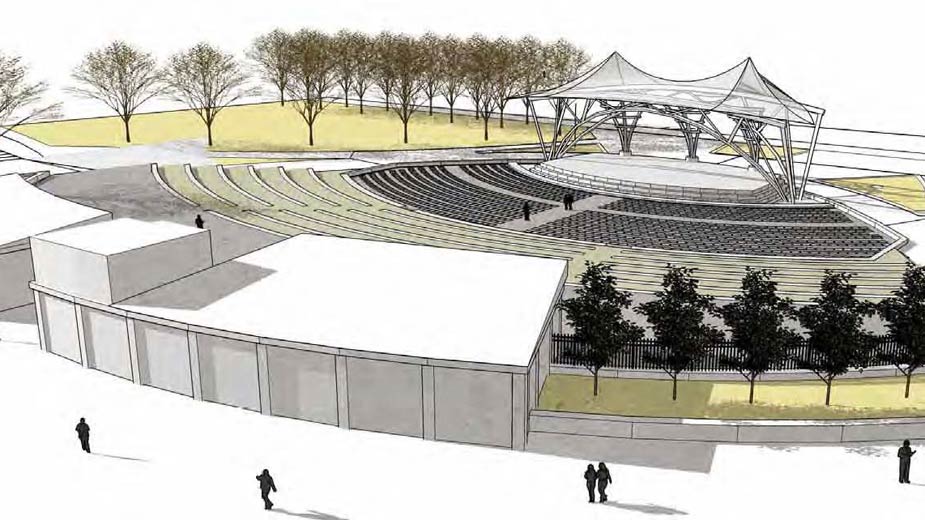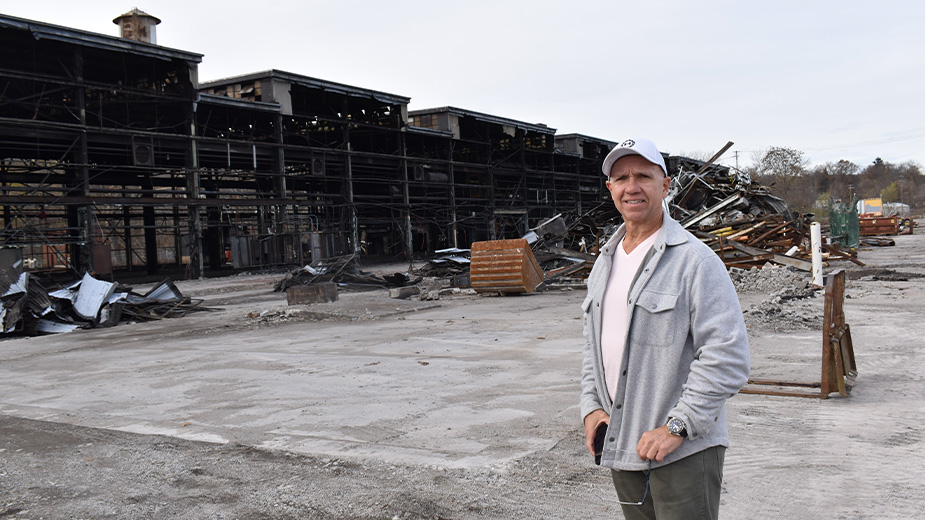Amphitheater Project Advances Amid Uncertainty
YOUNGSTOWN, Ohio – Work on the proposed amphitheater and riverfront park is proceeding on schedule, despite criticisms of the project during the Democratic mayoral primary and questions raised by President Donald Trump’s proposed budget.
MKSK, the Columbus landscape architecture firm the city engaged for the estimated $9 million project, is making “significant progress” on the final design, and the city is working with the firm to finalize a budget, Finance Director David Bozanich said.
Bozanich characterized as “positive” meetings between city officials and “several” interested parties regarding sponsorships and naming rights.
“We’re continuing to proceed with the construction of the facility,” he said. “We believe it’s going to have a really positive impact and a significant economic benefit for the people of Youngstown.”
During the mayoral primary, Jamael Tito Brown, who defeated Mayor John McNally for the nomination, questioned whether the city moved too quickly on the project, as well as the city’s plan to take out a $4 million Section 108 loan to help pay for the project and repay it using future Community Development Block Grant allocations.
The federal budget proposed last week by the White House calls for eliminating the block grants.
Last year, City Council approved creating a fund of up to $12 million for the project. In addition to the proposed $4 million loan, that fund could include $5 million in city water, wastewater and environmental sanitation funds to address related needs. Bozanich said he anticipates raising $3 million through naming rights and other sponsorship opportunities.
Brown said he supports the project but not how it would be funded.
Using block grant funds for the project “was not a great decision,” Brown said last week. CDBG funds would be better spent addressing concerns in a community that has a 40% poverty rate, he asserted.
The individuals who will benefit from the amphitheater “are not the ones we’re taking the funding away from,” Brown continued. Those funds “could have been better utilized to help people,” he said. Although he continues to hope for more private money, “The horse is out of the barn” on the project, he acknowledged
“My approach would have been more private funding up front,” such as from naming rights, and not using funds from the CDBG program, he said.
The Trump budget, if passed as proposed, “would be very problematic” for the project, Bozanich said. Few people expect the budget — which has received bipartisan criticism — to be approved in its current from.
“Everybody’s saying it’s dead on arrival,” Bozanich said. “That’s why you have checks and balances in government.”
Moreover, council members remain committed to the project, he said.
“City Council has expressed its desire to move forward with the project,” he said. “Should City Council be desirous of changing, they have the ability to do that.”
Bozanich previously said that revenue from the Covelli Centre, which has been generating operating surpluses in recent years, could be used to pay the amphitheater loan should there be issues with the CDBG program.
First Ward Councilman Julius Oliver affirmed his belief that council members still support the project.
“We definitely think it’s a benefit to the community,” Oliver said. Noting he couldn’t speak for his colleagues, the “general feeling” is that members are “still committed” to the project, he said.
The riverfront park and amphitheater also is supported by Sean McKinney, former city building and grounds commissioner, who is running for mayor as an independent.
“I am 100% excited about the anticipated project,” McKinney said. “In order to help with the poverty issues or the quality of life issues you have to bring in economic development, which I believe that the amphitheater will bring.”
McKinney was directly involved with the project when he was employed by the city. He will continue to see the project move forward “when I’m elected,” he said.
Copyright 2024 The Business Journal, Youngstown, Ohio.



